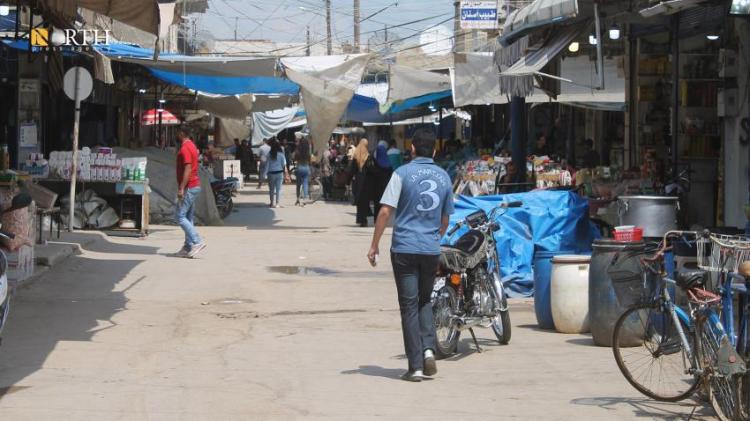Qamishli – North-Press Agency
Abdelhalim Suleiman
As the third period of the lockdown has approached its end by today, May 1st, the movement of residents in the streets of the city of Qamishli seemed almost normal, as many went out to shop and purchase necessities, and shops have opened in many neighborhoods, where their owners found a chance to open them for the first time since the lockdown.
Pharmacist Feldon Younis said: "People's fears have decreased compared to the first days of the ban."
However, Younis warns against underestimating the risks of the epidemic and avoiding a return to normal life, as the necessity to adhere to preventative measures from social distancing and the use of sterilizers and detergents still exist, especially at work.
The movement of popular markets in the neighborhoods has returned to a level close to its usual movement despite the continuation of the ban after about 40 days since its implementation, as people's demand for sterilizers, gloves, and masks declined compared to the first period in which they were in heavier demand.
On April 21, the Autonomous Administration in North and East Syria decided to extend the ban until early May, with some additional exceptions for professions whose work had been stopped in the previous period.
Zaid Sarhan, a resident coming from Derik to Qamishli, said that he did not mind the extension if it is helpful in reducing the spread of the scary epidemic.
He added that the views on the procedures will be more likely to be adhered to after recording new cases. "If the virus spreads, I will stick to the quarantine at home," he said.
The crisis cell in al-Jazira region is preparing for a new decision on May 1 regarding the lockdown measures.
The co-chair of the Health Board of the Autonomous Administration in al-Jazira Region, Dr. Raparin Hasan, said that the laxity in adhering to the lockdown in the area will negatively affect the measures to prevent the spread of the virus.
Hasan denied that the easing of procedures is a reason for the emergence of two cases with the virus in the region, but she warned that the continuation of this laxity with the emergence of cases will show a very negative impact.
Yesterday, Thursday, the Internal Security Forces (Asayish) imposed a home quarantine on 14 families in al-Omran neighborhood, southwest of Hasakah city, after confirming the infection of two people with the novel coronavirus on Wednesday, according to the Health Board of the Autonomous Administration in North and East Syria.
The movement of residents in the city of Hasakah appeared to be normal, without any change except for tightening on the entrances and exits of the city and allowing some employees of institutions that require the nature of its work to enter and exit the city.

